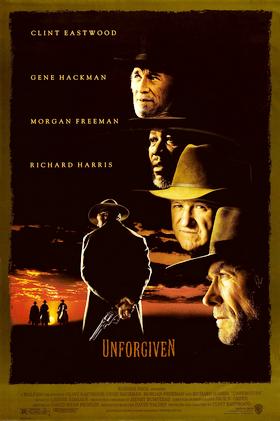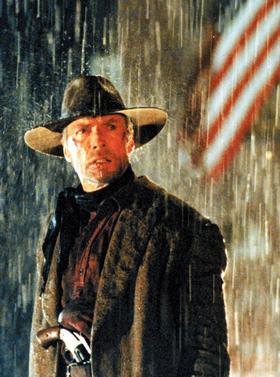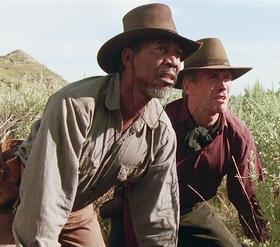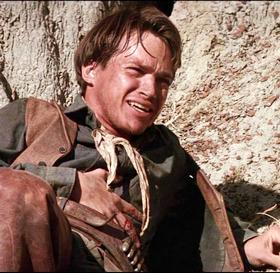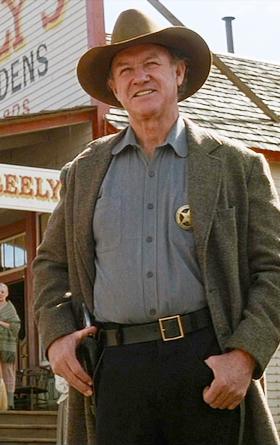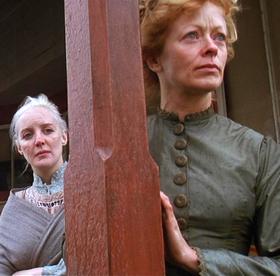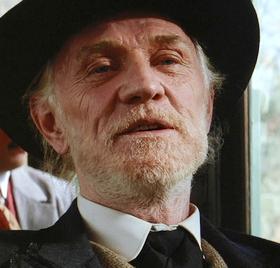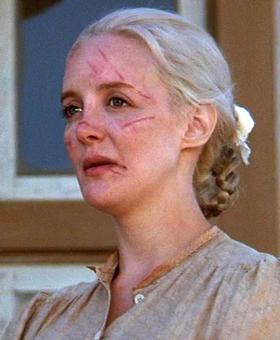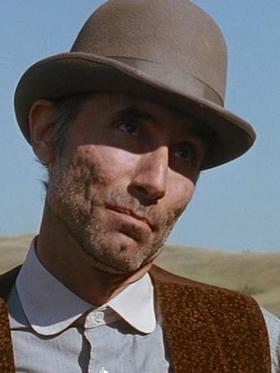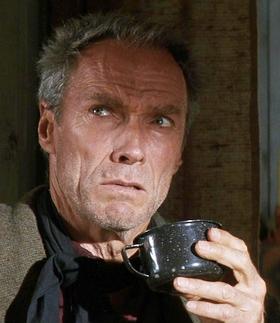Unforgiven
Reviewed by: Brett Willis
CONTRIBUTOR
| Moral Rating: | Very Offensive |
| Moviemaking Quality: |
|
| Primary Audience: | Adults |
| Genre: | Western |
| Length: | 2 hr. 10 min. |
| Year of Release: | 1992 |
| USA Release: |
August 7, 1992 |
| Featuring |
Clint Eastwood … Bill Munny Gene Hackman … Little Bill Daggett Morgan Freeman … Ned Logan Richard Harris … English Bob Jaimz Woolvett … The ‘Schofield Kid’ Saul Rubinek … W.W. Beauchamp Frances Fisher … Strawberry Alice Lochlyn Munro … Texas Slim John Pyper-Ferguson … Charley Hecker See all » |
| Director |
Clint Eastwood |
| Producer |
Clint Eastwood |
| Distributor |
I’m sure no one could have predicted that Clint Eastwood, the star of TV’s “Rawhide” and of a string of “Spaghetti Westerns,” would someday direct himself in a sensitive, Oscar-winning Western that portrays the killing of any person as a tragedy.
When Sheriff Daggett (Gene Hackman) punishes two cowboys who slash a prostitute’s face by only imposing a stiff fine to be paid to her “owner,” all the prostitutes at that establishment pool their money into a $1000 reward for the death of the cowboys ($1000 in the Old West might have bought a nice six-room house).
Daggett could run the cowboys off their boss’s ranch for their own safety, or he could run off the prostitutes. He decides to do neither, but rather just wait for the reward-chasers to come to town and challenge his authority. Eventually, retired gunslingers Bill Munny (Eastwood) and Ned Logan (Morgan Freeman), along with the nearsighted nephew of one of their old partners, come after the “whores’ gold.”
In earlier days, Munny and his gang had themselves been ruthless outlaws, even blowing up a train (and killing women and children) just to rob its cargo. They thought they’d put all that behind them and settled down with their families; but hard times and the lure of the money are now calling them back to their old life. Eastwood is perfect as a man who wants to honor the memory of his deceased wife and be a respectable father to his kids, and who knows he’s at least as Unforgiven as the men he’s setting out to kill, yet cannot stop himself.
This is a very well-made film, truer to the real West than the ’50s films with their pinpoint shooting and white hat/black hat plots. But it’s not family-friendly by any means. Profanity and salty language are extreme. The opening sequence at the saloon has realistic simulated sex, followed by the knife-slashing incident. Because several of the people who eventually are killed have fully-developed characters, and because we sense that those who die are not necessarily better or worse than those who do not, the killings have a much deeper emotional effect than they would in a cheapie, shoot-em-up Western.
When everything is over, a survivor moves to another state and assumes a new identity. But we feel the pain of the fact that he’s still Unforgiven. A changed lifestyle and the passage of time do not erase the guilt of sin; it must be dealt with directly, and Jesus is the only cure.


Throughout the rest of the movie, Eastwood goes on to show us (or sometimes just TELL us, in tedious detail) just how mean, brutal and greedy his characters all are. The only exception is (surprise, surprise) Eastwood’s now-mandatory black sidekick, who has been dragged into this against his will. Political Correctness raises its head here too. In one scene Morgan Freeman escapes from custody and a posse is formed to chase him. The description they are given of him carefully avoids mentioning just one little, tiny, thing about his appearance. I’ll leave it to you to guess what.
Meanwhile, on the other side: the sheriff is a bully and a thug, the gunfighters are incompetent braggarts and the journalist is a greedy fool. Without the assistance of social workers, Anger-Management classes or Domestic Abuse counseling in the Old West, there is not much Eastwood’s character can do alone. He does do one good deed for Handgun Control Inc (Ooops, they wouldn’t be founded for another eighty years) by talking (yawn) a young gunfighter into giving up his pistol…
At some point or other Eastwood’s character either shoots or talks the other characters to death and he returns to his farm. I didn’t notice if he becomes a vegetarian too, or just gives up wearing fur. Whatever it was, it worked, Hollywood forgave him and finally gave him his Oscar. Great. I only wish they would give me back the money I spent renting it. [2/1½]


